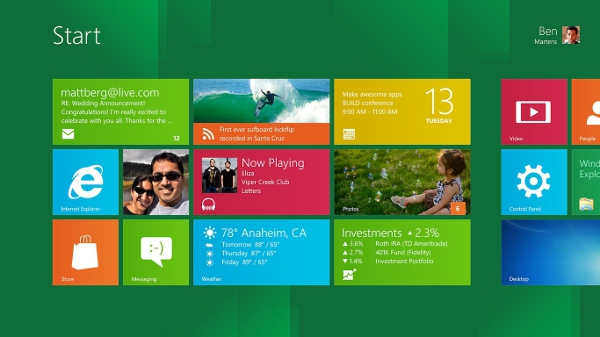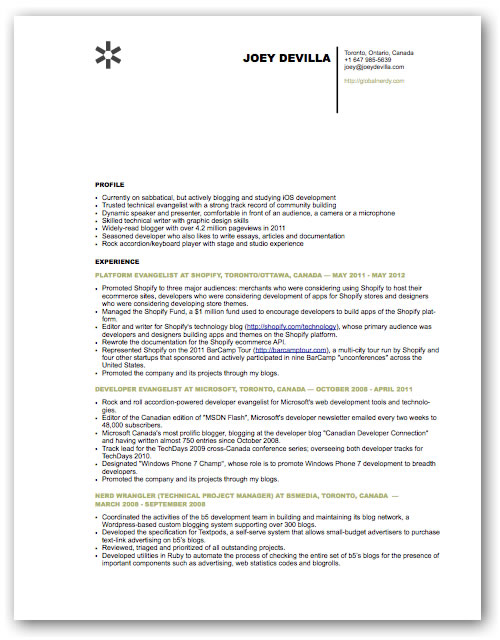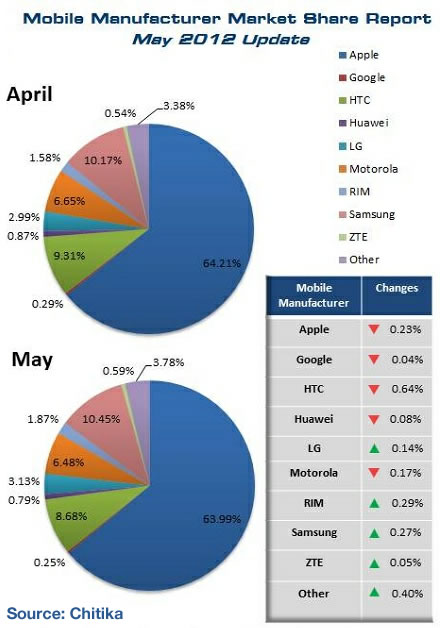Android 4.0, a.k.a. “Ice Cream Sandwich”, is now on slightly more than 7% of the Android devices out there. Android 2.3.3 is still the dominant version out there, accounting for about two-thirds of all Android devices, and its share is actually growing.
While Ice Cream Sandwich’s growth represents a doubling of share since early April, MG “ParisLemon” Siegler astutely notes that it took 7 months to hit the 7% mark. He also notes that the Google I/O conference, where they’re expected to announce the next version is coming soon, and:
Google will announce the next version of their OS before 10% of their users are on the last version. Think about how insane that is for a second.
Compare this to the growth rate of iOS 5, which surpassed a 20% adoption rate in 5 days by Chitika’s measure.
Higher Hanging Fruit: iMore’s list of features that iOS 6 could borrow from other mobile OSs. An interesting think piece on some great ideas already in other mobile operating systems that Apple could borrow for iOS 6, which will probably be covered at the upcoming WWDC.
Why is Todd Bishop struggling with Windows 8? Todd Bishop says it feels like a forced mashup between desktop and tablet. ComputerWorld has also expressed the same sentiment.
Maintenance and upkeep in action!
Maintaining an app is critical to its overall success. This argument argues that maintaining and upkeeping your apps is as important as their launch.










